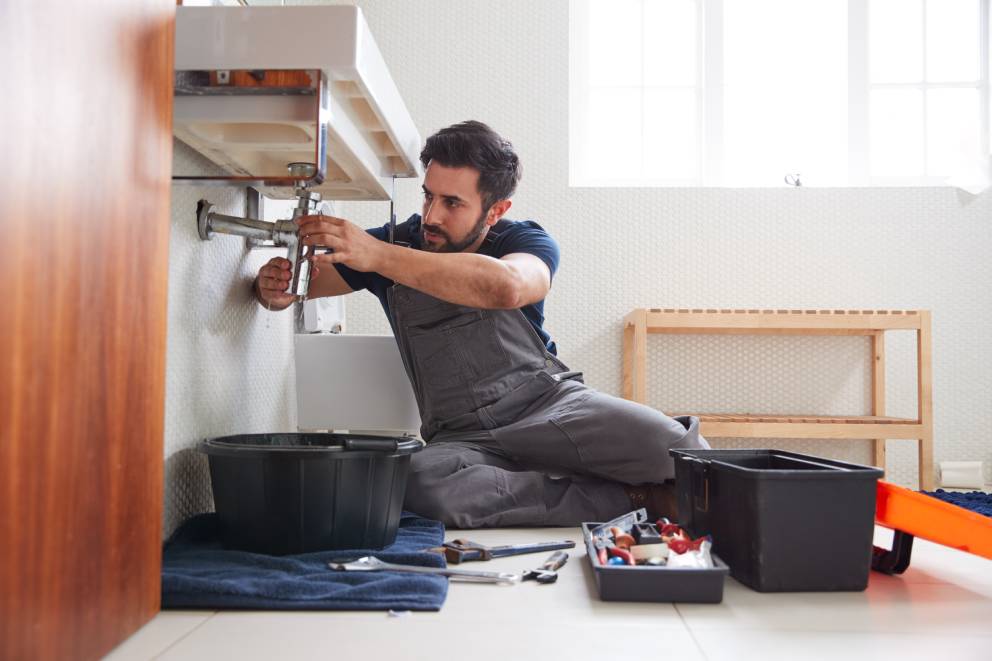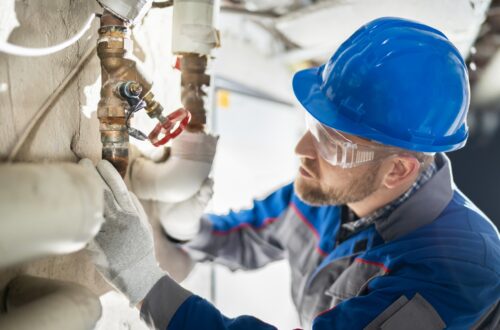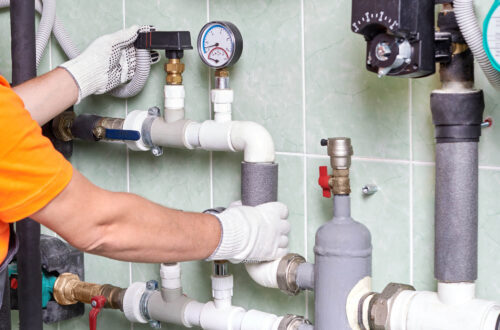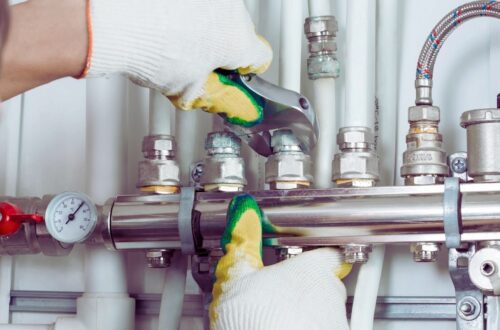Plumbing is an essential part of every household or business, ensuring the smooth functioning of water supply and waste removal systems. From leaky faucets to clogged drains, plumbing issues are inevitable, and they tend to occur at the most inconvenient times. While many people may delay plumbing maintenance or only call a plumber when something goes wrong, routine plumbing maintenance can help prevent most issues from becoming major problems.
In this blog post, we’ll explore why routine plumbing maintenance is so important, the benefits it provides, and how it can save you both time and money in the long run.
What is Plumbing Maintenance?
Plumbing maintenance refers to the proactive steps taken to inspect, clean, and maintain the various plumbing systems in a building. This could include anything from checking for leaks, inspecting pipes, testing water pressure, clearing blockages, or replacing old fixtures. Plumbing maintenance is typically performed by professional plumbers, but homeowners can also carry out basic tasks to keep their systems running efficiently.
Routine plumbing maintenance is different from emergency plumbing repairs, which often happen when a problem becomes severe. With routine maintenance, you’re addressing potential problems before they escalate into more expensive repairs.
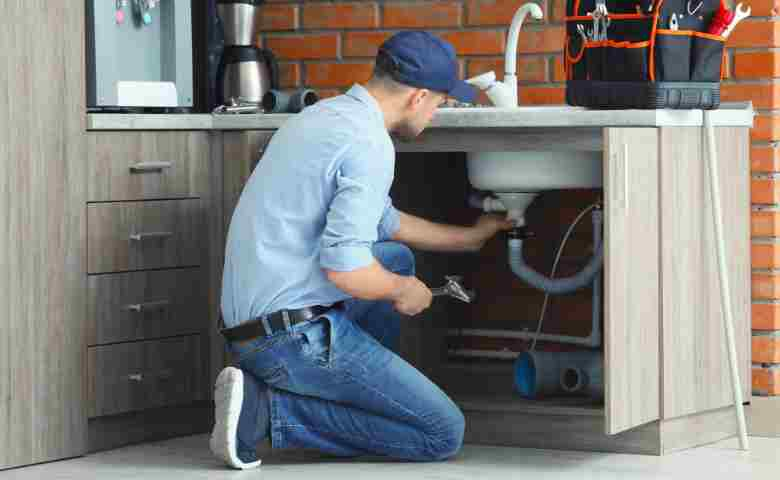
The Key Benefits of Routine Plumbing Maintenance
Prevents Expensive Repairs
Plumbing issues, when left unchecked, can cause significant damage to your property. For instance, small leaks in pipes can gradually lead to water damage, mold growth, or even structural damage if not addressed early. Routine plumbing maintenance helps detect these minor problems before they grow into costly issues. Regular inspections and cleaning of drains and pipes can catch clogs, leaks, or deteriorating pipes, thus preventing expensive emergency repairs.
Increases the Lifespan of Plumbing Systems
Plumbing systems can last a long time with the right care and maintenance. Routine plumbing maintenance ensures that your pipes, fixtures, and water heaters remain in good condition. Regular inspections can identify signs of wear and tear or corrosion in pipes, allowing homeowners to replace or repair them before they fail. By addressing potential issues early on, you can extend the lifespan of your plumbing systems and avoid the expense of having to replace everything at once.
Improves Water Quality and Flow
A well-maintained plumbing system ensures that your water is clean, free from contaminants, and flows at the right pressure. Over time, pipes can become clogged with mineral deposits, sediment, or rust, which can lead to poor water flow and reduced water quality. By regularly flushing your water heater and checking your pipes for buildups, routine plumbing maintenance ensures that your water pressure remains steady and your water quality stays high.
Saves Water and Money
Leaks in your plumbing system, whether they’re from faucets, pipes, or toilets, can waste a surprising amount of water over time. A small leak can add up to gallons of water every day, which, in turn, increases your water bills. Regular plumbing checks help detect leaks early, enabling you to repair them before they waste more water and money. Additionally, routine maintenance can help you spot inefficiencies in your water heater or other appliances, allowing you to optimize energy use and reduce utility costs.
Helps Avoid Health Hazards
If your plumbing system isn’t functioning properly, it can lead to serious health hazards. Clogged pipes and drains can cause wastewater backups, which may introduce harmful bacteria and pathogens into your living environment. Routine maintenance ensures that your plumbing system is working efficiently, reducing the risk of these health threats. A well-maintained system also prevents mold growth, which thrives in damp environments caused by leaks or water damage.
Keeps Your Home Comfortable and Safe
Routine plumbing maintenance ensures that your plumbing systems are working efficiently, preventing disruptions to your home or business. Imagine trying to shower without hot water, dealing with a clogged toilet, or fixing a burst pipe during a snowstorm. These situations can be extremely stressful, especially during inconvenient times. Regular plumbing inspections and maintenance can prevent these disruptions and ensure your home remains comfortable and safe for you and your family.
How Often Should You Schedule Plumbing Maintenance?
 The frequency of plumbing maintenance depends on various factors, such as the age of your plumbing system, the size of your home, and the usage of your plumbing fixtures. As a general guideline, homeowners should schedule professional plumbing maintenance at least once a year. However, if you live in an older home with aging pipes, you may want to have your plumbing checked more frequently.
The frequency of plumbing maintenance depends on various factors, such as the age of your plumbing system, the size of your home, and the usage of your plumbing fixtures. As a general guideline, homeowners should schedule professional plumbing maintenance at least once a year. However, if you live in an older home with aging pipes, you may want to have your plumbing checked more frequently.
Some basic maintenance tasks, like checking for leaks around faucets or cleaning your drains, can be done more frequently by homeowners themselves. However, for more comprehensive inspections and repairs, it’s always best to rely on a professional plumber.
What Does a Routine Plumbing Maintenance Service Include?
When you hire a professional plumber for routine plumbing maintenance, you can expect a thorough inspection of your entire system. Common tasks that are included in plumbing maintenance services include:
Checking water pressure
Inspecting pipes and fixtures for leaks or signs of wear
Cleaning drains and clearing clogs
Flushing water heaters to remove sediment buildup
Inspecting the sump pump and other drainage systems
Checking for signs of mold or mildew
Inspecting sewer lines for potential issues
Routine plumbing maintenance ensures that these essential tasks are handled regularly, so you don’t have to worry about unexpected plumbing problems.
Plumbing is one of the most essential systems in any building, and keeping it in good working condition requires routine maintenance. Regular plumbing checks prevent costly repairs, increase the lifespan of your plumbing system, improve water flow, save water and money, and reduce health hazards. By staying proactive with your plumbing maintenance, you can avoid unexpected problems and ensure your home remains safe, comfortable, and efficient for years to come. Don’t wait until something breaks — schedule your routine plumbing maintenance today!
